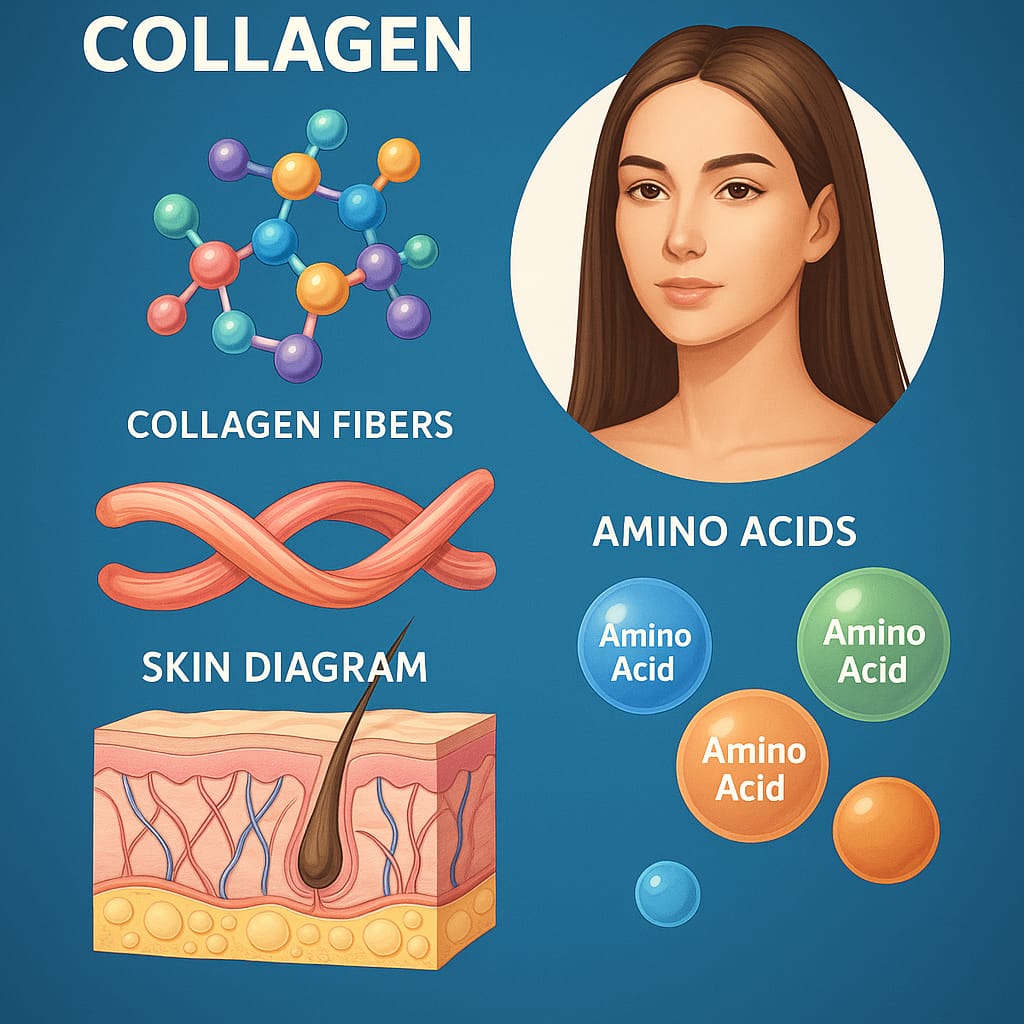The Complete Guide to Collagen Types, Benefits, Damage Causes, and How to Boost It Naturally at Any Age
Hey, busy bees… time to awaken the hive!
Collagen for Anti-Aging—They say beauty fades—but what if I told you the real tea is… collagen is what’s ghosting your glow? That bouncy skin, strong joints, and hair that doesn’t break at the sight of a brush? Yeah, you can thank collagen for that. But thanks to aging, stress, sugar (I’m looking at your midnight cravings), and sun damage, your body’s collagen levels might already be packing their bags.
It’s like your skin’s ride-or-die is slowly turning into a frenemy—and sis, we do not tolerate betrayal in this house. So whether you’re 25 and just clocking the first under-eye crease or 55 wondering if your moisturizer is lying to you, this guide spills everything. We’re talking types, benefits, collagen killers, and the ultimate age-proof routine that’ll have your skin screaming, “I woke up like this.”
Grab your green juice—or your iced latte, no judgment—and let’s get into it. Because glowing isn’t a trend, darling. It’s a lifestyle.
Whether you’re in your 20s or over 60, collagen plays a powerful role in keeping your body and skin firm, flexible, and glowing. But aging, poor diet, pollution, and unhealthy habits can break down collagen—leading to visible signs of aging like wrinkles, dull skin, and joint pain.
What Is Collagen & Why Is It So Important?
Collagen is a protein found throughout the body—in your skin, bones, muscles, tendons, ligaments, and even blood vessels.
It’s like the body’s natural glue, keeping everything firm, stretchy, and strong.
According to Healthline, collagen production naturally declines with age, stress, and environmental factors. especially after age 25 and during menopause.
This leads to:
- Wrinkles & sagging skin
- Joint stiffness
- Weak hair & nails
- Slower wound healing
Different Types of Collagen (And What They Do)
There are 28 types of collagen, but the most important ones for health and skin are:
- Type I: Found in skin, bones, tendons – improves firmness and elasticity
- Type II: Found in cartilage – essential for joint health
- Type III: Found in organs and skin – supports structure
- Type IV & V: Important for cell membranes, hair, and placenta
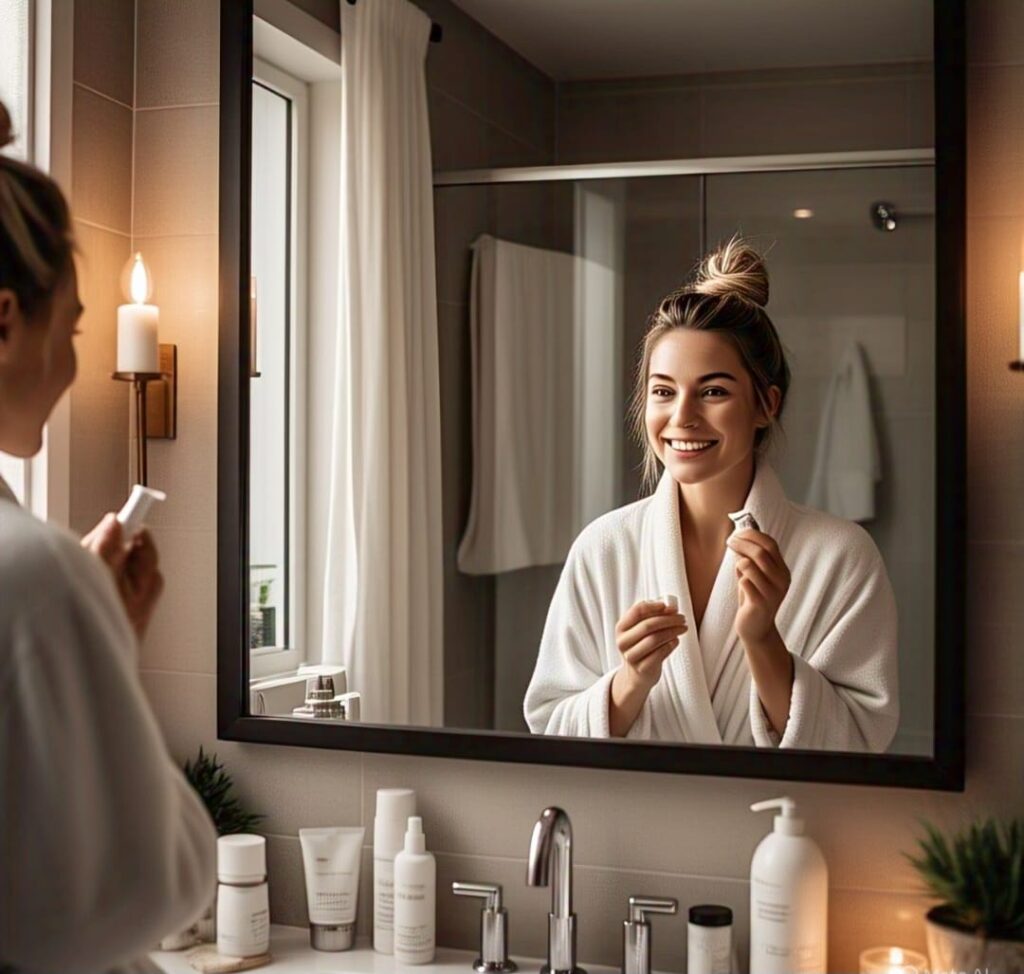
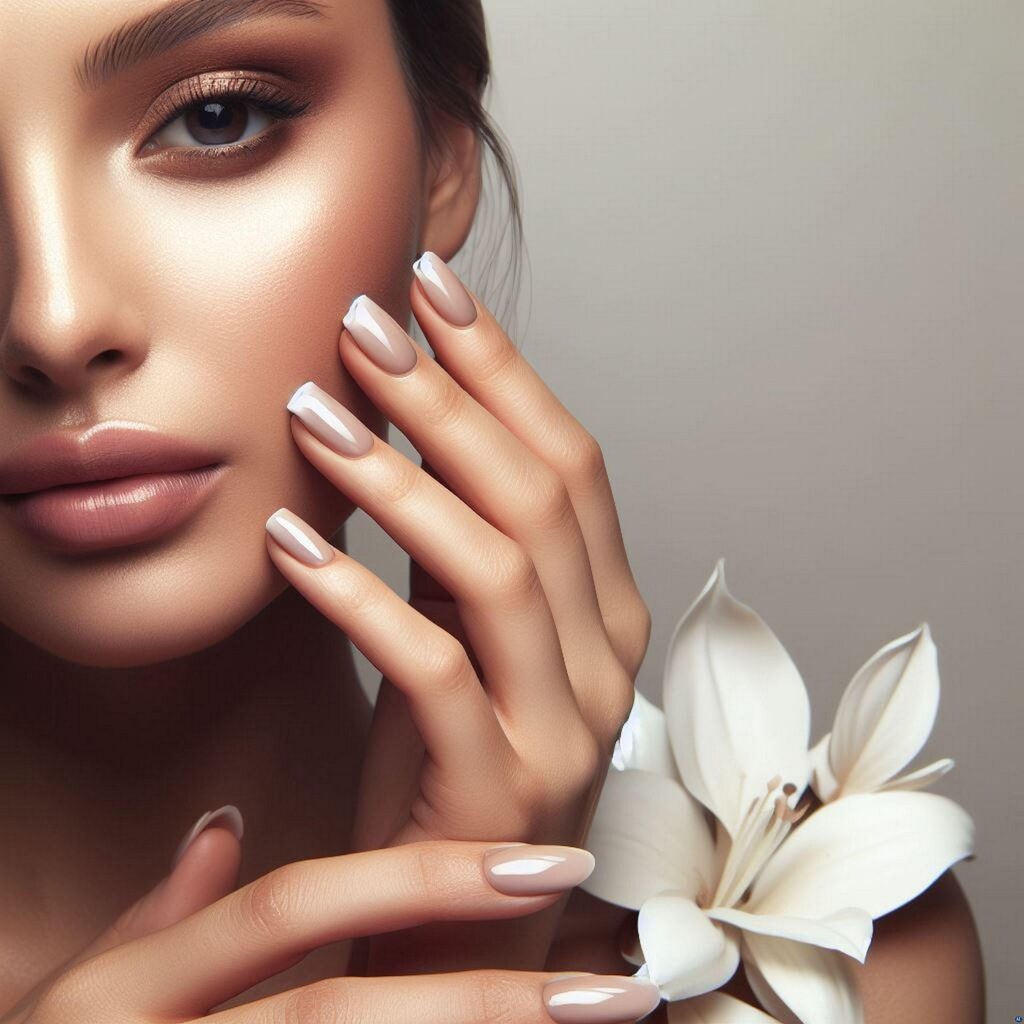
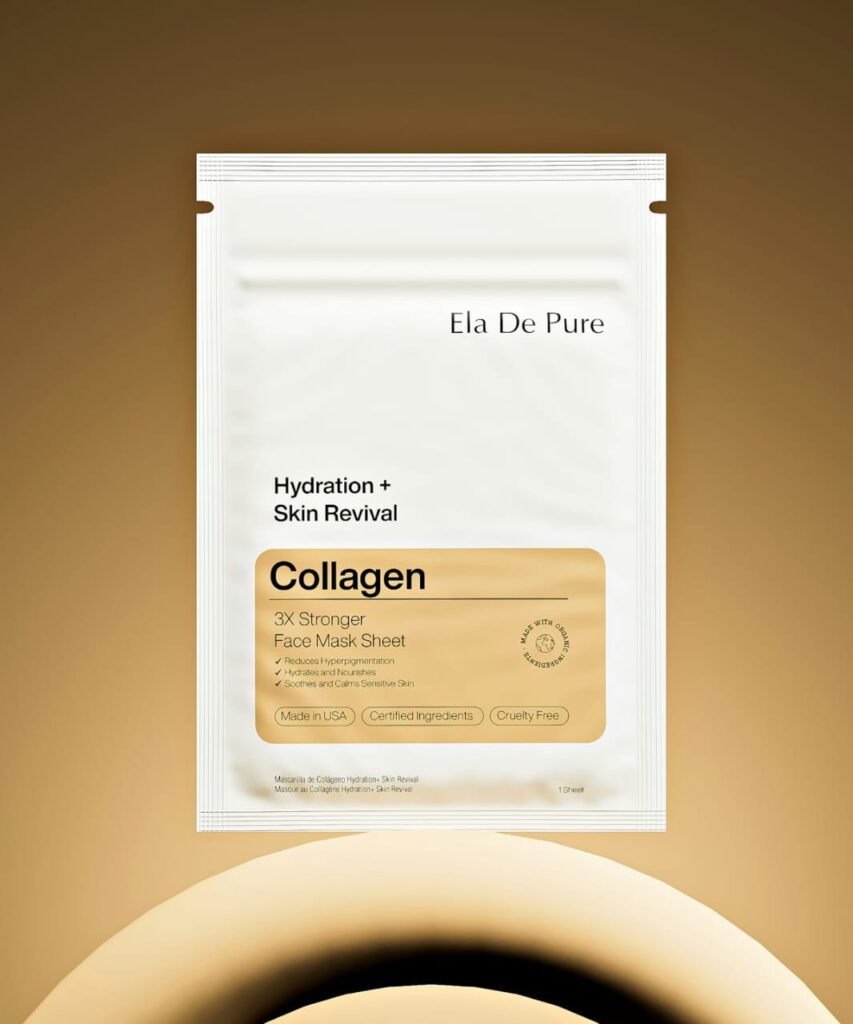
What Damages Your Collagen Levels?
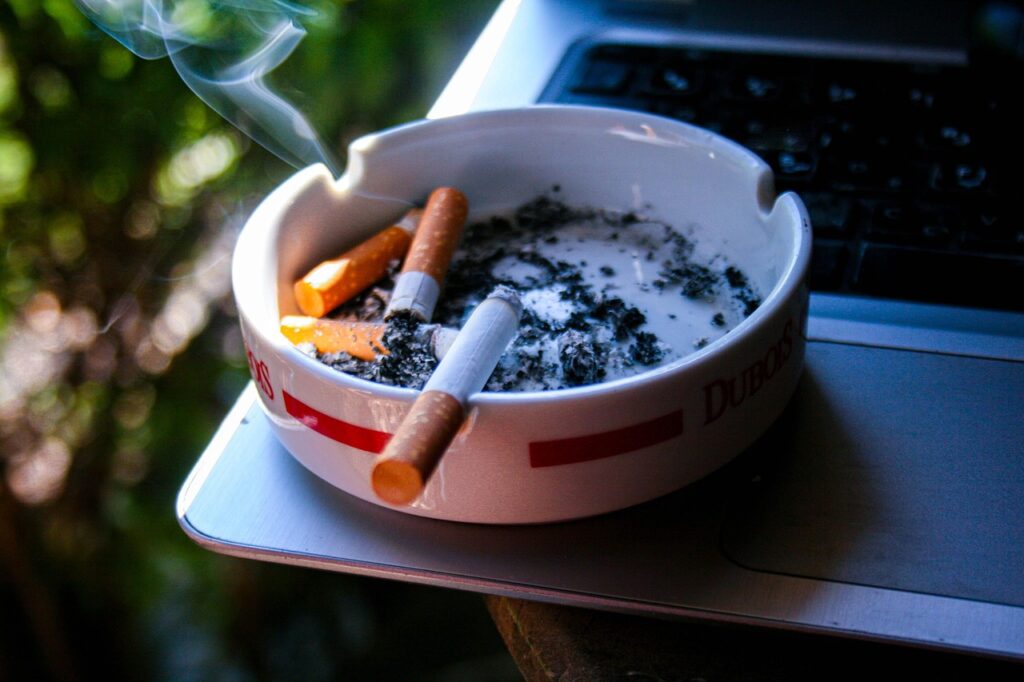
Lifestyle Habits That Destroy Collagen:
- Smoking
- Too much sugar
- UV exposure (sunlight)
- Lack of sleep
- Stress
- Excess alcohol
Medical Conditions That Harm Collagen:
- Autoimmune disorders (e.g., lupus, RA)
- Diabetes
- Vitamin C, zinc, or protein deficiency
- Menopause (due to estrogen decline)
Research published in PubMed shows that UV exposure and oxidative stress break down collagen fibers and speed up visible aging—cue wrinkles, sagging, and dullness.
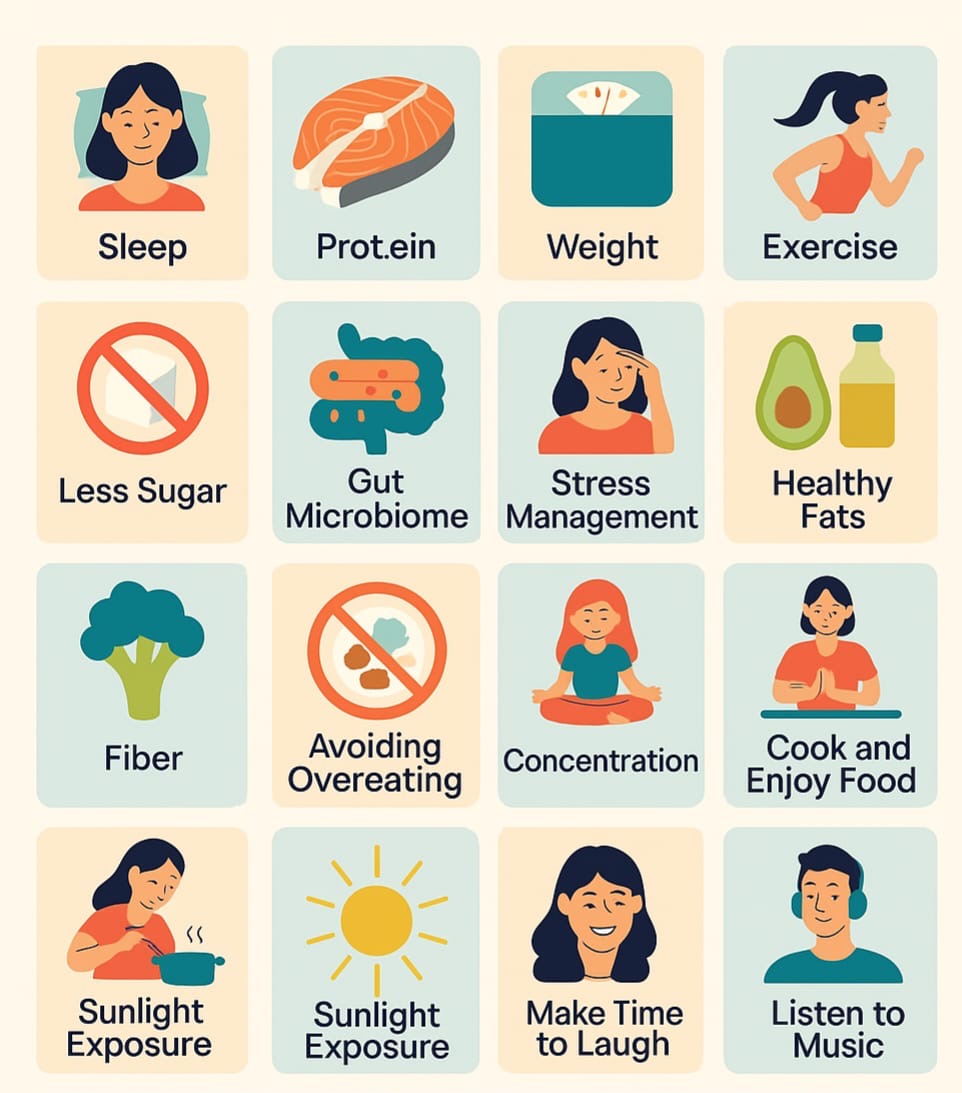
“Why does my skin suddenly look… tired?”
Not aging, babe—betrayal.
Sugar’s snatching your glow. Stress is stealing your bounce. And hormones? Oh, they’re throwing silent tantrums behind the scenes.
But you didn’t hear it from me…Here’s how to put those hormones back in their place. Because looking radiant isn’t just luck—it’s strategy.
Beauty Benefits of Collagen (Must-Read for Women)
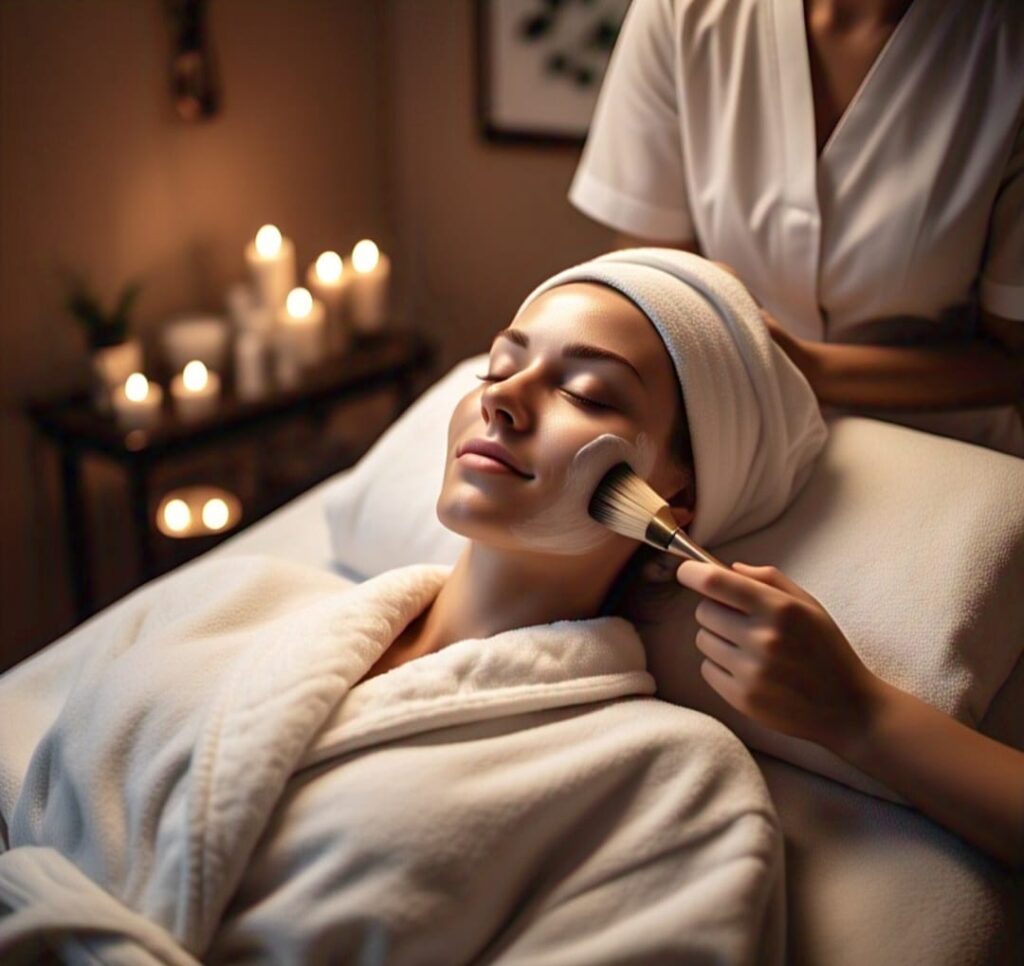
Collagen isn’t just a health supplement—it’s a beauty essential.
How Collagen Improves Your Appearance:
- Glowing Skin: Boosts hydration, elasticity & smooth texture
- Fewer Wrinkles: Fills in fine lines, firms up saggy areas
- Thicker Hair: Supports hair structure and reduces hair fall
- Stronger Nails: Reduces brittleness and splitting
- Even Skin Tone: Supports skin regeneration for clear, radiant complexion
Pro Tip:

Collagen’s cute and all—but
what’s the point of a glowing face if the belly’s doing its own thing, right?
Tired of slathering on expensive creams while your waistline and wrinkles seem to be in a toxic relationship? Been there, felt that. The truth is — beauty doesn’t just start with collagen, it starts with balance.
So if you’re glowing up on the outside, let’s not ignore the middle part (hello, stubborn belly fat ). Pair your collagen with our guide on healthy weight loss tips for women — because beauty is a full-body affair, and we don’t do half-baked hotness around here.
How to Boost Collagen Naturally (At Any Age)
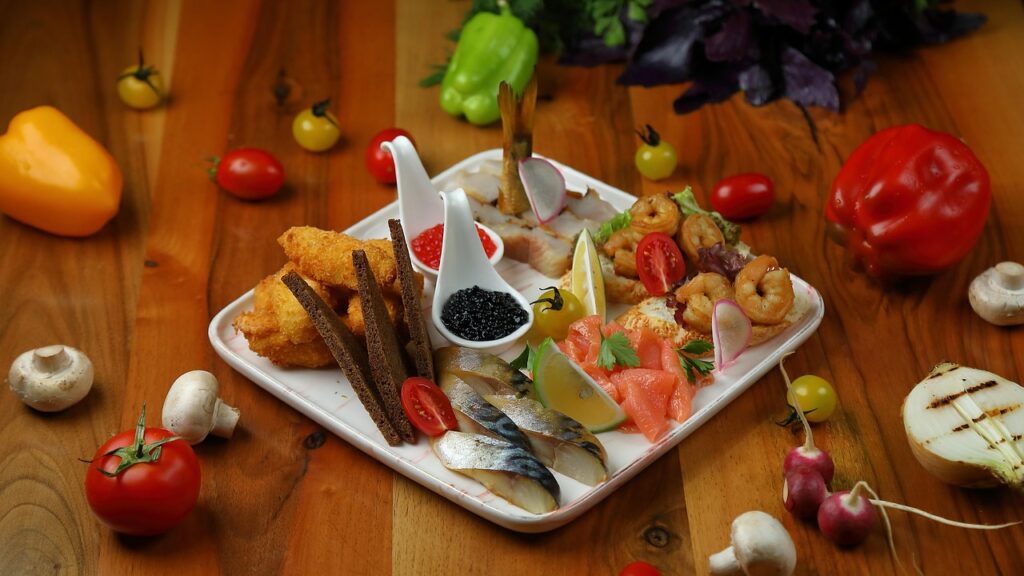
1. Eat Collagen-Boosting Foods:
- Vitamin C: Amla, oranges, guava
- Protein: Lentils, tofu, Greek yogurt
- Zinc: Seeds, nuts, whole grains
- Antioxidants: Spinach, turmeric, berries
Quick Desi Fusion Recipes:
- Haldi Chia Doodh (Golden milk with chia)
- Spinach Paneer Smoothie
- Amla-Coconut Detox Shot
2. Use Collagen Supplements:
- Hydrolyzed peptides are highly absorbable
- Take with Vitamin C for best results
- Visible improvements in 4–8 weeks
3. Herbal & Natural Boosters:
- Aloe vera, Gotu kola, Ginseng, Moringa
- Ayurvedic picks: triphala, tulsi, amla

Collagen in Cosmetics & Medicine
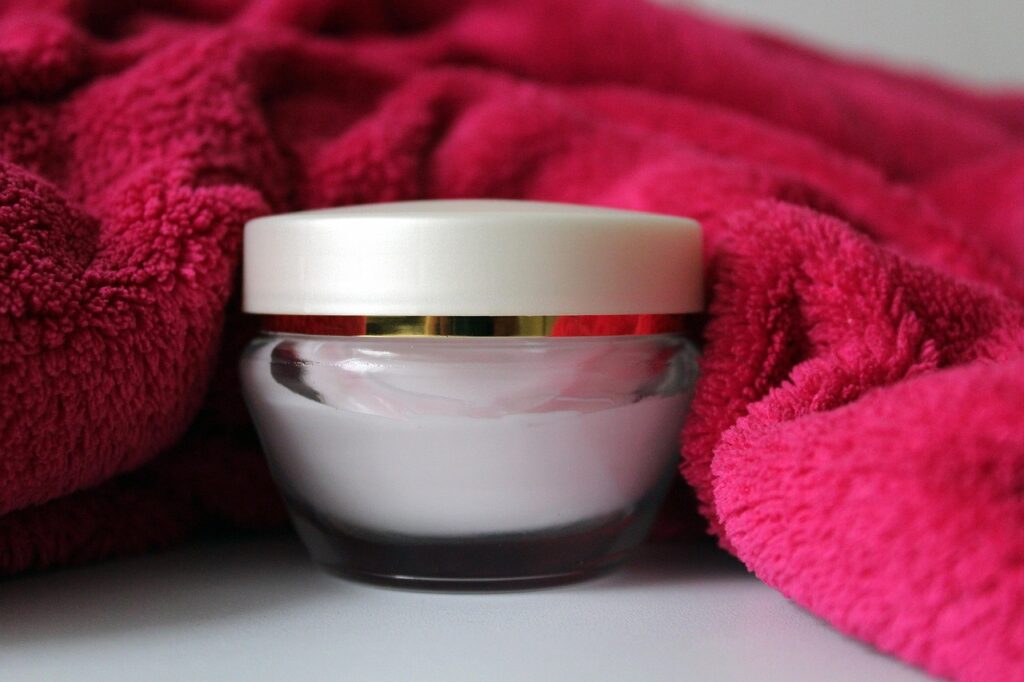
- Topical creams: Limited absorption—mostly moisturizers
- Injectables: Fillers for lips, wrinkles, or scars
- Medical use: Wound healing, arthritis, and surgery recovery
Is Eating Collagen Better Than Applying It?
Yes—definitely. Ingesting collagen allows your body to break it down and rebuild skin, joints, and bones from the inside. Topical products don’t penetrate deep enough for true anti-aging effects.
Best Daily Routine to Protect Collagen (Morning to Night)
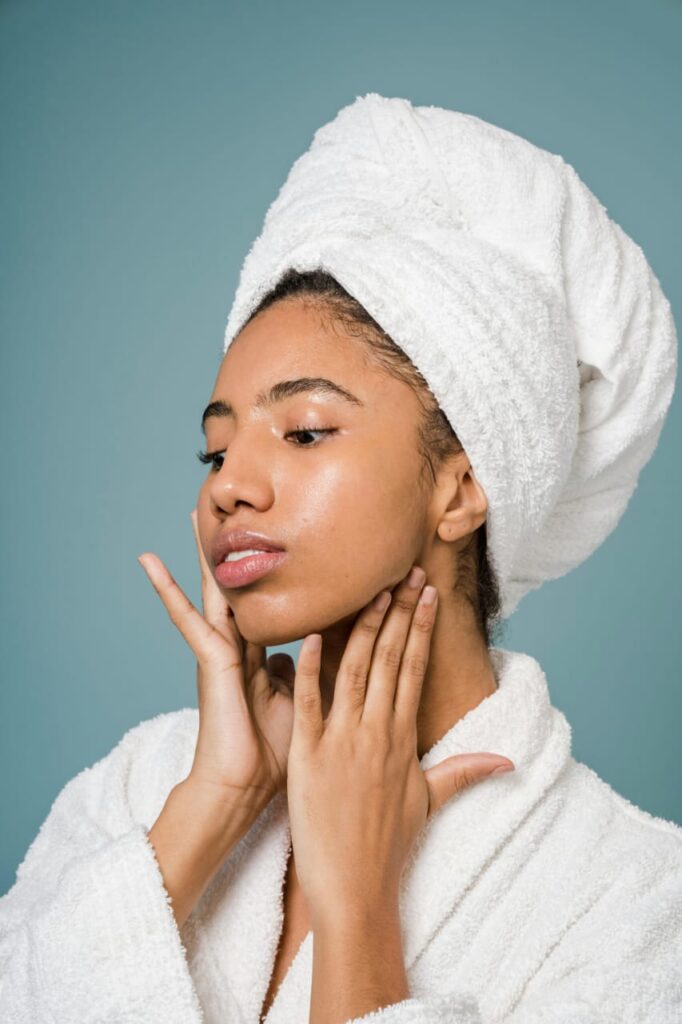
Morning:
- Amla/lemon water
- Vitamin C-rich breakfast
- Apply sunscreen
Afternoon:
- Stay hydrated
- Eat protein & greens
Evening:
- Herbal tea
- Light, antioxidant-rich dinner
Night:
- Collagen supplement
- 7–8 hours of sleep
Myth vs. Fact Table
| Myth | Fact |
|---|---|
| Creams are enough | Internal collagen is more effective |
| Men don’t need collagen | Men benefit for joints, hair & muscle |
| Only older people need it | Production starts dropping after 25 |
DIY Collagen-Boosting Face Mask
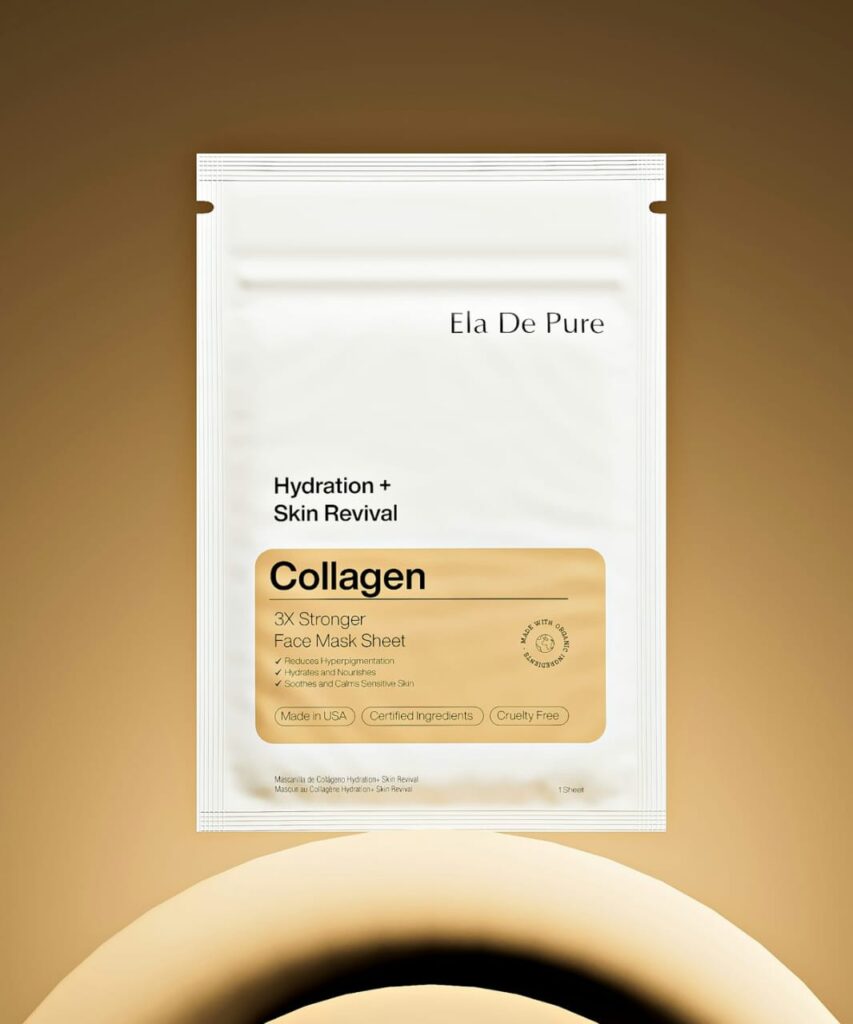
- 1 tbsp multani mitti
- 1 tsp aloe vera gel
- 1 tsp rose water
- A pinch of turmeric
Apply for 15 minutes and rinse. Helps brighten and support collagen naturally.
Age-Wise Collagen Care Chart
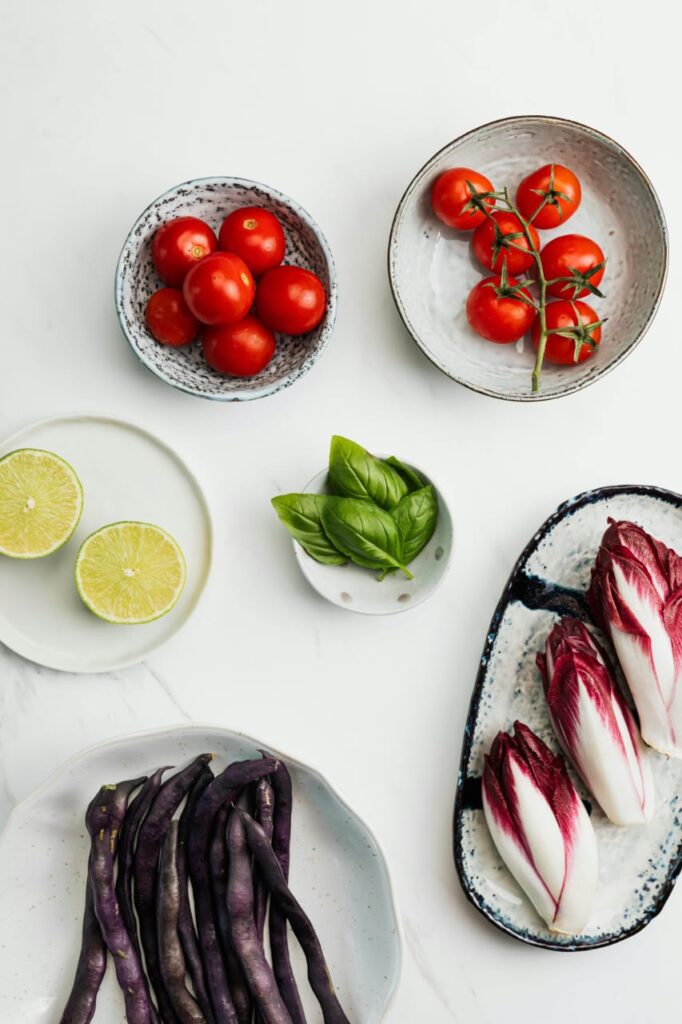
| Age Group | Tips |
|---|---|
| 20s | Prevent damage with sunscreen & hydration |
| 30s | Add Vitamin C, high-protein diet |
| 40s-50s | Supplements + anti-stress routine |
| 60+ | Support joints, hydration, and healthy fats |
Moral?
No matter your age, collagen is the key to aging gracefully.
No matter your age, collagen is the key to aging gracefully. By understanding what damages it and how to protect it through smart lifestyle choices, nutrition, and beauty care, you can restore your glow, strength, and confidence—naturally.
Start your collagen journey today. Your skin, hair, joints, and future self will thank you.
FAQs: About Collagen (That People Secretly Google at 2 AM)
Is collagen really the fountain of youth or just another wellness trend?
Honey, collagen for anti-aging isn’t just hype—it’s your skin’s secret BFF. Think of it as the scaffolding holding up your glow. After 25, your body’s like, u003cemu003e“I’m too old for thisu003c/emu003e and starts slowing collagen production. That’s your cue to start sipping, slathering, or supplementing.
What are some natural collagen boosters that actually work?
If you’re looking for a u003cemu003eu0022glow-up from the inside out,u0022u003c/emu003e load up on collagen-rich foods for skin health like amla, berries, citrus, and leafy greens. Nature made them for a reason—because beauty isn’t just skin deep.
Is it true that plant-based collagen alternatives don’t work?
Not exactly. There’s no u003cemu003erealu003c/emu003e plant-based collagen (only animals make it), but plants like aloe vera, gotu kola, and amla are like nature’s hype squad—they boost your body’s collagen game naturally. Call them the u003cemu003eundercover agentsu003c/emu003e of youthful skin.
How soon will I see results after taking collagen supplements?
It’s not instant magic, sweetie—give it 4 to 8 weeks. But when it hits, you’ll be like u003cemu003e“Who is she?!”u003c/emu003e—firmer skin, better joints, fewer fine lines. A real u003cemu003eplot twistu003c/emu003e in your skincare journey.
I’m 28. Too early for collagen, or fashionably on time?
On time and on point. Collagen for anti-aging isn’t just for 50+—by 25, your natural collagen has already started u003cemu003eghosting you.u003c/emu003e Prevention u003e panic.
What’s the best collagen-rich food for glowing skin (without cooking a 7-course meal)?
Babe, your pantry already has the glow-up: spinach, turmeric, nuts, berries, and Greek yogurt. These natural collagen boosters are like skincare in a spoon. Stir it up in a smoothie, and call it u003cemu003ebrunch with benefitsu003c/emu003e.
Is DIY skincare legit or a Pinterest scam?
Legit, if you do it right. Our DIY collagen face mask recipe? Chef’s kiss. Multani mitti, rose water, aloe—this combo is like a spa day for your pores. Plus, it smells like you’ve got your life together.
Can men use collagen too, or is it a girl thing?
Collagen doesn’t care about your gender. Strong joints, smooth skin, and better hairlines are everyone’s dream. Real men use collagen—and probably steal your supplements.
What breaks down collagen the fastest (and how do I u003cemu003enotu003c/emu003e sabotage my glow)?
Sugar, smoking, stress… basically, the u003cemu003etoxic exesu003c/emu003e of skincare. Ditch them and switch to natural collagen boosters like ginseng and Vitamin C. Trust me, your skin will ghost the wrinkles and swipe right on the glow.
Can I just use a cream instead of eating collagen? Asking for my lazy self.
Sweetheart, putting collagen cream on your face is like painting a cracked wall—it helps a bit, but it doesn’t fix the inside. Eating collagen (or boosting it naturally) is the real power move. Remember: beauty is built, not brushed on.
Got more questions? Drop them in the comments—let’s talk about Collagen for Anti-Aging and Natural Collagen Boosters!
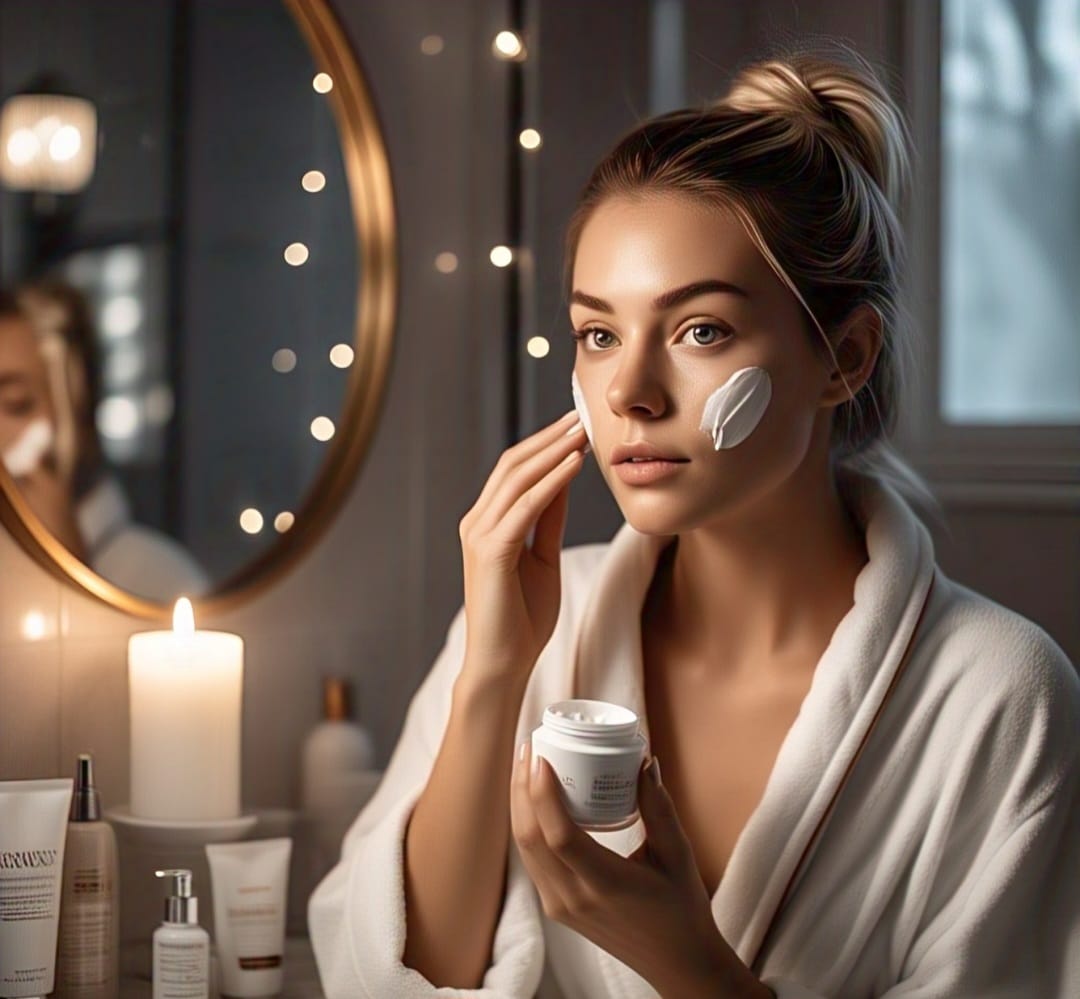
If Your Body Could Talk, Here’s What It’d Say About Collagen…
- If your body could talk about collagen, she’d probably say: ‘Girl, I’m literally holding it together with vibes and vitamin C.’
- Imagine your skin whispering: ‘One more iced coffee and no collagen? Bold of you to assume I’ll keep glowing.’
- If your joints had a group chat, they’d be texting: ‘Y’all… where did the collagen go?’
- Your hair, skin, and nails just filed a complaint: ‘We demand collagen, hydration, and a little less drama.’
- If collagen were a person, she’d be that loyal friend who always shows up — until sugar, stress, and sleep deprivation ghost her.
And just like that… another secret to timeless skin is out. You’ve been officially initiated into the Collagen Club—where wrinkles are out, radiance is in, and plant-based collagen alternatives are the new black.
Remember, glowing skin isn’t just for girls in skincare commercials or royalty with 24k facials. It’s for girls like you—smart enough to sip their collagen, snack on collagen-rich foods for skin health, and whip up a DIY collagen face mask recipe that makes your mirror say, “Damn, who is she?”
And if someone ever says collagen for anti-aging is a scam? Just smile, sip your green tea, and let your skin do the talking. Because honey, the only lines we’re keeping are our WiFi ones.
So go on, boost your beauty the natural way, because in this world full of filters…
real glow wins—until next time, my radiant rebels.

